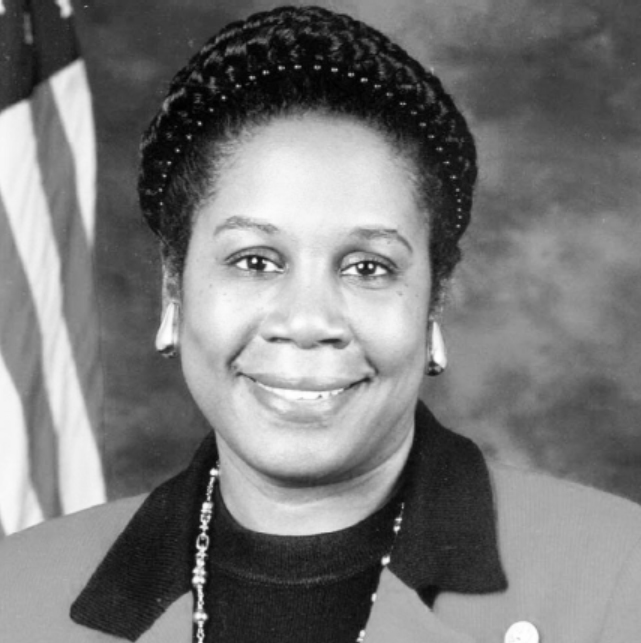Women Leading The Fight For Reparations

Disclaimer: The views and opinions expressed in this article are those of the author and do not necessarily reflect the editors' views or any agency, organization, or employer. Based on my research and knowledge, my statements are in good faith and are only for information purposes.
Reparations. There it is, I said it, and according to statistics, seven out of ten people have already moved on because they don't want to hear it. However, this is not a call for reparations but an acknowledgment of those who have made that call. On the heels of the Black Wealth Gap series and as a woman who is always mindful of women working in the trenches, I thought it essential to go back and talk about how women have worked to close the wealth gap by fighting for reparations. For example, even before the end of slavery, women like Belinda Sutton Royall (1713-178?), a slave for a wealthy British family in Massachusetts, fought for restitution for her services. Then after Civil War and the repeal of the offer of "40 acres and a mule", many other women have championed the call, like Callie House, Audley Moore, Rep Sheila Jackson Lee of Texas, and others. While the call for reparations might be debatable for some, my great appreciation for these brave women is not.
Belinda Sutton (Royall)
Born in West Africa around 1713, Belinda Sutton was twelve years old when she was captured in Ghana, transported via the transatlantic slave trade, and enslaved by the British Royall family in Massachusetts. She served the Royall family well until the American Revolution caused her Master to run from the country. Before he fled, her master (Isaac Royall Jr.) freed Sutton and willed her a pension from his estate. However, that portion of the will was not honored until she fought for it by petitioning the court for it beginning in 1783. She was periodically paid but had to petition the court for the payments until she died. By the way, a portion of Issac Royall Jr estate was used to establish the Harvard Law School.
After the Civil War ended in 1865, slaves were emancipated; most received nothing when freed and were forced to fend for themselves. General William Tecumseh Sherman recognized this, and he worked with a group of ministers in the South and proclaimed that "40 acres" of land would be set aside for newly freed slave families.
However, after Lincoln's death, President Andrew Johnson repealed that order in 1866, and much of that land given was confiscated and returned to former owners and white rebels in the South. Following this, a widespread request for reparations for the unpaid labor worked during slavery.
For example, after the Civil War ended, Sojourner Truth circulated a petition calling for the federal government to compensated freed slaves.
Callie Guy House
Along with Truth, Callie Guy House (1861-1928), born the same year the Civil War ended, also advocated for reparations.
In her vocal and written petitions House explains that she and her family experienced the hardships of destitution following their emancipation. Living in Nashville in the 1890s, House and others formed the "National Ex-Slave Mutual Relief, Bounty and Pension Association to advocate for reparations." She became the organization's leader in the late 90s, and while she was in charge, the membership grew significantly. In 1916, the federal government charged and convicted House on mail fraud, claiming that she collected money under the pretense of forthcoming reparations. Callie House spent approximately a year in jail. She died in 1928.
"If the government had the right to free us she had a right to make some provision for us and since she did not make it soon after Emancipation she ought to make it now."
Callie Guy House
Audley "Queen Mother" Moore Born in 1898, I'm unsure if Audley "Queen Mother" Moore (1898-1997) ever met Callie House, but she, like House, committed her life to fight for reparations. Now Queen Mother, as others affectionately called her, was persistent in her drive for restitution. Throughout her life, she formed, organized, and led many efforts to improve the quality of life for Black Americans, including the Committee for Reparations for Descendants of U.S. Slaves in 1963. Moore presented to the United Nations several times and wrote a pamphlet titled "Why Reparations," where she explained the debt America owes to the descendants of slaves. Moore continued her push for payment until she died in 1997, As you can see, before Ta-Nehisi Coates tried to make a case for reparations in Congress in July 2019, several women had blazed the trail of calling out for reparations before him.
Representative Sheila Jackson Lee is among them as she has led the push for H.R. 40, which Michigan Representative John Conyers introduced in 1989.
The bill calls for a commission to study and develop a proposal for reparations for the descendants of slaves. While that call has gone unheard, black women like Lee, the women who founded the Black Lives Matter Movement, and other organizations still believe that slavery negatively disenfranchised Black Americans and that someone should pay the cost for that.
Sophia Brewer (M.L.I.S.) is Collection Development and Serials Librarian, Grand Rapids Community College; Co-President of the Greater Grand Rapids History Council; member of the Grand Rapids Study Club and serves on the Grand Rapids Public Library, Board of Library Commissioners (Elected 2016-2021). She is a former Head of Programs, Grand Rapids Public Library and former Branch Manager, Madison Square Branch, Grand Rapids Public Library

Tagged in: